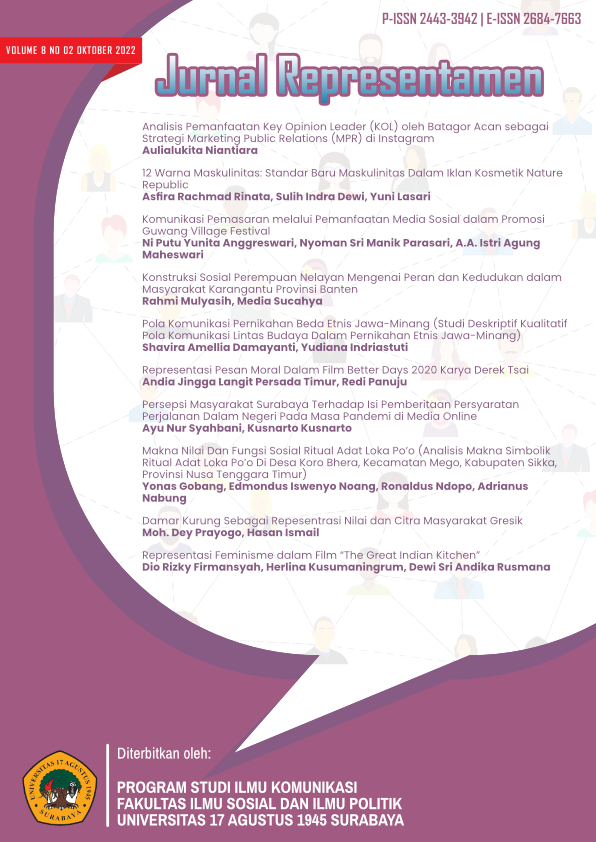Representasi Pesan Moral Dalam Film Better Days 2020 Karya Derek Tsai
DOI:
https://doi.org/10.30996/representamen.v8i2.7219Abstract
Research on the representation of moral messages in the film Better Days 2020 by Derek Tsang examines the film's story about the story of a teenage girl who is often bullied at school and involved in a murder case with her friend. This study aims to gain an understanding of the moral messages contained in the film Better Days 2020 by Derek Tsang. The method used is qualitative, with a semiotic analysis approach of Roland Barthes. The object of this research is the film Better Days 2020, which produces the findings that: Signs in the scene in the film Better Days are semiotically displayed in realistic audio, visuals, graphics, text, and motion; The markers in each film scene are interpreted in a straightforward manner as they are; and Signs in this film are interpreted interpretively, so that the general representation of this film explores the problems of physical and mental stress in life that befell school youth from a poor environmental background, with a moral message that no matter how strong and resilient the human personality is in dealing with pressure, physically and mentally, if they are not supported by their environment, they will experience bad luck too, but as bad as fate befalls a person, it will be better for those who remain strong and endure it than those who do not have the strength and resilience.
Downloads
Downloads
Published
Issue
Section
License
Authors whose manuscript is published will approve the following provisions:
The right to publication of all journal material published on the jurnal representamen website is held by the editorial board with the author's knowledge (moral rights remain the property of the author).
The formal legal provisions for access to digital articles of this electronic journal are subject to the terms of the Creative Commons Attribution-ShareAlike (CC BY-SA) license, which means Jurnal Representamen reserves the right to store, modify the format, administer in database, maintain and publish articles without requesting permission from the Author as long as it keeps the Author's name as the owner of Copyright.
Printed and electronic published manuscripts are open access for educational, research and library purposes. In addition to these objectives, the editorial board shall not be liable for violations of copyright law.











